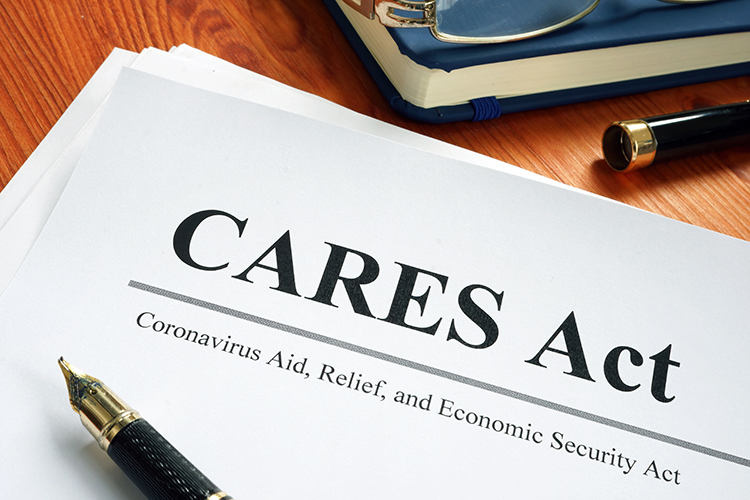
7 CARES Act Benefits for Nonprofits
The recent Coronavirus Aid, Relief, and Economic Security” (CARES) Act provides relief to employers struggling to stay afloat during the novel coronavirus (COVID-19) pandemic. The not-for-profit sector is no exception. In fact, some provisions in the new law are specifically tied to charities. Following is a brief summary of seven key benefits for nonprofit employers and supporters.
- Paycheck Protection Program (PPP) Loans
The PPP is the cornerstone of the COVID-19 federal stimulus package. Companies and nonprofits with 500 or fewer employees generally are eligible to apply for loans through authorized banks. After the initial $349 billion for PPP loans was exhausted within two weeks of the program’s introduction, Congress allocated an additional $325 billion on April 21.
PPP loans are forgivable if you use the proceeds to pay for certain expenses, including:
- Payroll costs,
- Mortgage interest incurred before February 15, 2020,
- Rent under lease agreements in effect before February 15, 2020, and
- Utilities for which services began before February 15, 2020
At least 75% of PPP loan proceeds must cover payroll costs, including staffers’ wages and benefits. However, loan funds can’t be used for compensating employees making $100,000 or more annually.
The amount of your loan eligible for forgiveness is reduced if you don’t keep employees on the payroll or if you reduce their wages by more than 25% compared with last year. If you’ve already laid off staffers, you can rehire them by June 30, 2020, and still qualify for loan forgiveness. Note that you’ll need to produce documentation (such as W-2s and quarterly payroll tax filings) to verify pay rates for current and prior years.
- Disaster Grants
The CARES Act also sets aside $10 billion for Emergency Economic Injury Disaster Loan advances. Emergency grants are available to private nonprofit organizations, including 501(c) trade associations, advocacy organizations, unions and social clubs that aren’t eligible to participate in the PPP. If your organization qualifies, nonprofits may receive a $10,000 emergency advance within three days of applying for it.
- Employee Retention Credits
Also available is a payroll credit comparable to the existing credit for family and medical leave. The CARES Act credit applies to payroll taxes for wages paid to employees in 2020. It’s available if your operations are fully or partially suspended due to COVID-19 or if gross receipts have declined by more than 50% when compared to the same quarter last year.
This refundable credit is equal to 50% of the first $10,000 of qualified wages paid to each employee during the year (the maximum credit is $5,000 per employee). It applies to wages paid or incurred from March 13, 2020 through December 31, 2020. Note, however, that you can’t claim both the employee retention credit and the family and medical leave credit for the same wages.
- Economic Stabilization Fund
A new Economic Stabilization Fund offers loan guarantees and investments to organizations in industries affected by the COVID-19 pandemic. If your nonprofit can’t participate in the PPP — for instance, if it has more than 500 employees — it may qualify for this relief.
Loans can be direct loans or loan guarantees, but they can’t be forgiven like PPP loans. However, they must have an interest rate no higher than 2% and interest payments aren’t due in the first six months. If you qualify for this assistance, you’ll need to make certain certifications.
- Unemployment Benefits
Organizations that elect to self-insure rather than pay state unemployment tax will be reimbursed for half the costs of benefits provided to laid-off employees. In addition, the CARES Act provides an extra $600 per week to employees on top of their state unemployment benefits for four months.
A new pandemic unemployment program aids unemployed and partially employed employees and individuals unable to work who don’t typically qualify for traditional benefits. This includes furloughed employees, contractors, gig economy and self-employed workers in the nonprofit sector.
- Delayed Payroll Taxes
Businesses and nonprofits affected by the COVID-19 outbreak can defer payroll taxes that are due in 2020. This applies to the employer’s share of the 6.2% Social Security tax. Your organization may then arrange to pay 50% of the required amount by December 31, 2021, and the remaining 50% by December 31, 2022, without penalty.
- Charitable Contributions
Finally, the new law offers various tax incentives intended to encourage charitable givers to continue making donations despite economic uncertainty. These incentives include:
- A deduction of up to $300 for donations, even if the taxpayer doesn’t itemize — but only for the 2020 tax year.
- Elimination of the deduction limit in 2020 for monetary contributions based on 60% of adjusted gross income (AGI).
- Enhanced deductions for donations by corporations. The new law raises the usual limit of 10% of AGI to 25% and increases the deduction limit for gifts of food from 15% of AGI to 25%.
For Specific Advice
This is just an overview of the main CARES Act benefits for nonprofits. Every organization is unique, so you should contact your tax and financial advisor for specific advice about how to obtain loans and take advantage of new tax breaks.
The information contained in this post may not reflect the most current developments, as the subject matter is extremely fluid and constantly changing. Please continue to monitor Yeo & Yeo’s COVID-19 Resource Center for ongoing developments. Readers are also cautioned against taking any action based on information contained herein without first seeking professional advice.